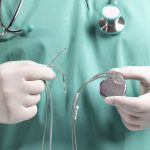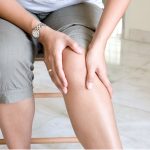Accidental overdose of medicine
What is an accidental overdose of medicine?
Taking too much of a medicine is known as an overdose. More Australians are dying from accidentally overdosing on medicines than ever before. Taking too much of a medicine can be very dangerous, and even life-threatening, but accidental overdoses can be prevented.
Most medicines have risks as well as benefits. Medicines are toxic (harmful) if you take too much. Some medicines can also be toxic if you take them at the same time as alcohol or some other medicines.
An accidental overdose can happen if:
- you take a medicine by mistake
- you use the wrong medicine by mistake
- you take too much of a medicine by mistake
- you take a medicine together with another medicine or alcohol which cause a harmful reaction if they are combined
Accidental overdoses can also happen during medical or surgical procedures.
How can accidental overdose happen?
The more medicines you take, the more you’re at risk of harm from them. In recent years, more than 1 in every 2 deaths from accidental overdose have involved a person taking 3 or more substances.
You are more at risk of accidental overdose if:
- you are taking a combination of different medicines
- you don’t follow the instructions of your doctor or pharmacist properly
- you mix medicine with alcohol.
There are mistakes that can mean overdose is more likely:
- Taking more than one medicine with the same active ingredient (for example, 2 cold and flu medicines might have different brand names but both contain paracetamol, which means you will take double the dose if you take both).
- Taking medicine that is stronger than you thought (for example, medicines with the same brand name may come in different strengths, meaning that a tablet in one package contains a higher dose of medicine than a tablet in a different package).
- Using the wrong measuring device for the medicine (for example, using a tablespoon rather than a teaspoon means you take more than you need).
- Forgetting how much medicine you’ve already taken.
Your child is more at risk of accidental overdose if:
- you incorrectly calculate your child’s dosage of medicine based on their weight
- you don’t store a medicine safely, meaning that your child can reach the medicine and accidentally swallow it
It’s always important to read the label, even if you have taken the medicine before.
What are the symptoms of an overdose of medicine?
The symptoms of a medicine overdose depend on the type of medicine. If someone has overdosed.
- is not breathing, or their breathing is shallow
- appears to be unconscious, can’t be woken up, is snoring or gurgling
- appears to be confused
- has blue lips or fingertips
- has a seizure
- has floppy arms and legs, or cool, clammy skin
- has pinpoint-sized pupils
Which medicines are the most dangerous?
It’s important to be careful with all medicines, but some are more dangerous or involved in more overdoses than others.
Opioids
Opioids, such as the strong pain medicines oxycodone and fentanyl, are the most common cause of fatal accidental overdoses in Australia. The risk is higher if you are also drinking alcohol or taking other medicines at the same time, in particular benzodiazepines (such as diazepam and alprazolam), antidepressants or antipsychotics.
Paracetamol
Paracetamol is the most common cause of people being admitted to hospital for accidental overdose. Paracetamol is also one of the most common causes of accidental overdose in children. Taking too much paracetamol can lead to yellow eyes and skin (jaundice), loss of coordination, liver damage and even death. It’s important to get medical help as quickly as possible if you think you or your child have taken too much paracetamol, as the damage can happen even before you notice any symptoms.
Benzodiazepines
Benzodiazepines, such as diazepam and temazepam, are the second most common cause of accidental overdoses resulting in death, mostly when they are combined with other substances. The risk is higher if they are taken with alcohol, or if they are taken with many other medicines, including opioids and some over-the-counter medicines.
Diabetes medication
If you have diabetes, taking too much insulin or other diabetes medicines can cause your blood sugar level to drop too low. This can develop into a serious situation — ask your doctor or diabetes educator what to do if this happens to you. It’s also dangerous for people who don’t have diabetes to take these medicines.
What should I do if someone has overdosed?
If someone has taken a medicine and is unresponsive, don’t assume they are just asleep — an overdose is a medical emergency.
While waiting for the ambulance, follow these steps:
- Stay with the person who has overdosed.
- Lie them on their side.
- Talk to them, if they’re conscious.
- Loosen any tight clothes.
- Open a window or take them outside for air.
- Be aware that they may need CPR.
If you are worried that someone has taken the wrong type or amount of medicine. They will tell you what signs to watch out for and whether you should stay home, see your doctor or go to hospital.
How is an overdose treated?
Treatment of an overdose depends on the type of medicine taken.
There are antidotes available for some medicines. An antidote is a substance that may be able to reverse the effects of the overdose.
Naloxone is a medicine that can temporarily reverse the effects of an opioid overdose. The Take Home Naloxone Program, funded by the Australian Government, makes this medicine available for free and without a prescription to anyone who might experience or witness an opioid overdose.
Learn more about the Take Home Naloxone program.
How can I reduce my risk of an accidental overdose?
Make sure you understand which medicines you’re taking and how to take them. Always follow any instructions from your doctor or pharmacist.
It’s very important to store medicines correctly and always keep medicines out of the reach of children.
There are some things you can do to reduce your risk of an overdose:
- Always read the medicine label and consumer medicine information (CMI) leaflet.
- Find out which medicines can be taken together, and which need to be taken at different times.
- Make sure you understand what you can and can’t do while you are taking the medicine, for example, if you should avoid driving. Find out if it’s safe to drink alcohol.
- Always measure the medicine accurately. Take special care when measuring medicine for children.
- Only take medicine that has been prescribed for you — never take someone else’s medicine.
- Talk to your pharmacist about managing your medicines safely, or to organise a Home Medicines Review.
- Talk to your doctor about whether you can gradually reducine the amount and number of medicines you are taking.



